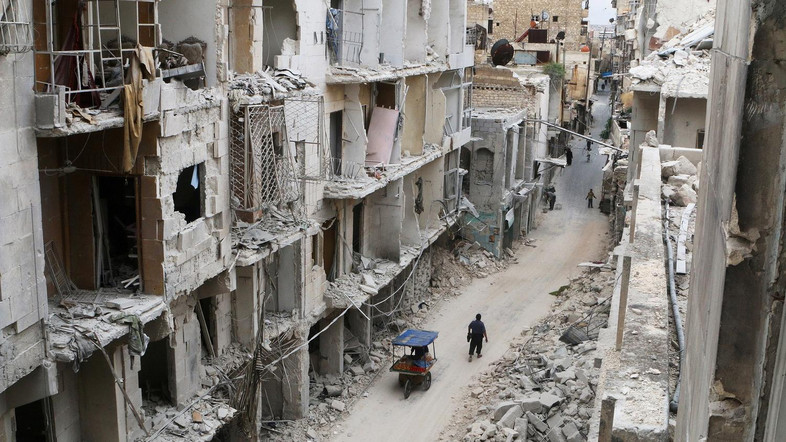The life or death battle for Aleppo
Khairallah Khairallah/The Arab Weekly/August 07/16
The way in which Russia and Iran are exploiting the battle for the Syrian city of Aleppo is clear. After all, this is a battle in which Russian air strikes and Iran-backed militias are playing a leading role. The aim is to present US President Barack Obama’s outgoing administration with a fait accompli, especially as US policy towards Syria and the region at large will certainly change, one way or another, whether the next US president is Donald Trump or Hillary Clinton. Will Iran and Russia succeed in displacing Syrians from Aleppo? That is the main question as they seek to benefit, as much as possible, from Turkey’s domestic crisis and Obama’s desire to placate Tehran to protect what he views as the greatest foreign policy achievement of his administration, the Iran nuclear deal.
Clinton has sought to differentiate herself from Obama over Syria, advocating a far harder line than the US president whom she served under as secretary of State, including calling for the establishment of so-called safe zones and providing moderate Syrian rebels with heavy weaponry. If Syrian rebels were to have access to heavy weaponry, including anti-aircraft missiles, it would be a game changer, particularly in the battle for Aleppo. If Hillary Clinton were to become president, she would take a completely different tack on the Middle East and Syria than Obama, She understands that the Syrian crisis is one of the biggest tragedies of the 21st century and until it is resolved the Middle East will only become more dangerous.
The Democratic Party nominee for president understands that Washington does not have to bend over backward to ensure that Tehran is happy with the nuclear deal as this is something that is greatly in Iran’s interests. A change of US policy in Syria does not mean that Tehran will rip up the Joint Comprehensive Plan of Action (JCPOA). It is all posturing. As for Trump, Clinton’s Republican Party rival, nobody can guess what he might do once he becomes president. Trump has not spoken much on US policy towards Syria but he has been an outspoken critic of the JCPOA. This means that Trump, unlike Obama, would not link Washington’s response to Syria to Tehran and the nuclear deal. Syria is a maelstrom of competing interests between Washington and Moscow, Tehran, Ankara and others, while it is the Syrian people who are suffering. Obama’s policy of disengagement with the Middle East left a dangerous vacuum that rival powers sought to fill. This led to the rise of the Islamic State (ISIS), which is a blight on the region and a threat to the world. Whether Clinton or Trump succeeds Obama in the White House, Syria will still be facing one of the biggest crises in the modern world. The crisis in the country, and the region, has gone way past the point where it could quickly and easily be resolved.
The damage that Syria has suffered is irreparable, whether we are talking about the scale of destruction, the death toll or the sheer number of people who have been internally or externally displaced. Who is left to rebuild the country after all this?
It is hard to imagine any effective US policy towards Syria that is not in coordination with Europe and Arab countries that are concerned with what is going on there, while it is just as hard to imagine any mechanism to reach such unprecedented coordination. All the while the battle for Aleppo is continuing, more Syrians are dying and the prospect for a solution — political or otherwise — becomes increasingly small. What does the future hold for Aleppo, one of the oldest cities in the world? If this destruction continues, there will be no Aleppo to fight over.






















